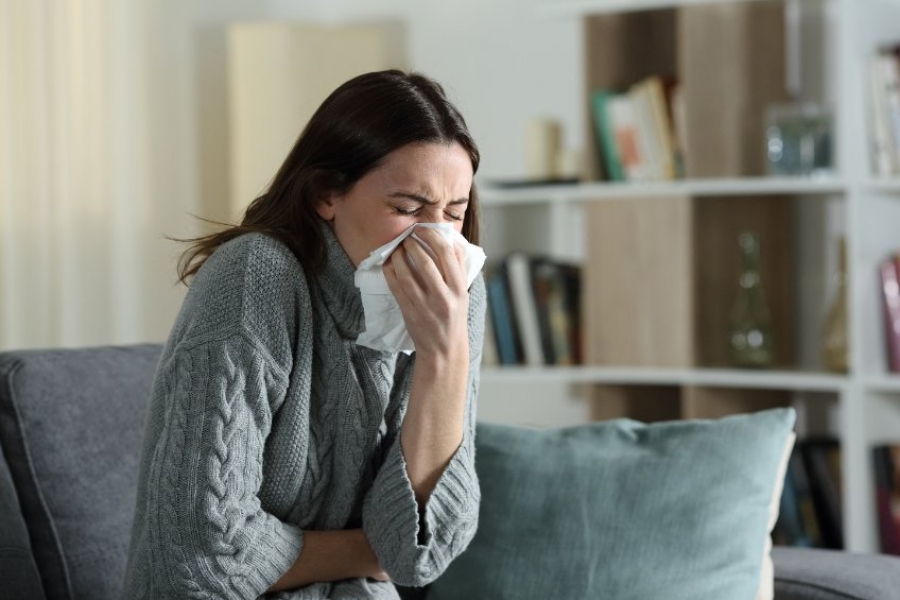Your home is supposed to be a sanctuary, but what if it’s quite the opposite? What if your home is making you sick? That’s the situation for some people, and the following are some of the most common ways you could be impacted if your own house is making you sick.
Is the Humidity Too High?
When your home has humidity above 60%, it becomes mold’s breeding ground. If your humidity levels get high enough, it can allow mold to spread behind the walls. We know mold can cause various health issues, including chronic sinus conditions, and even damage your nervous system.
When a house is too humid, it can also be a welcoming environment for dust mites, causing sleep disorders, allergic reactions, and stomach problems.
Of course, on the flip side, if your home isn’t humid enough, it can cause respiratory irritation. A home with humidity that’s below 40% is considered too low.
So how do you know if you’re maintaining the proper humidity levels? You can buy a humidity monitor and make sure it’s staying between 40-60%. You can also run fan vents if you cook or shower and open windows to increase ventilation. A dehumidifier can be helpful if needed too.
Excessive Dust
Cleaning your house isn’t just an aesthetic issue. You want to ensure your home is free of dust because it can cause dust mites irritating to eyes and nasal passages.
Dust mites can stress your immune system and, over time, weaken it. Dust can also attract particles and dirt from outdoors, which may have pesticides and herbicides, which are toxic to our nervous systems.
To get rid of excessive dust, ensure that you’re vacuuming frequently and make sure the filter of your vacuum is clear. You can add a HEPA filter to your HVAC system and avoid wearing shoes in the house. Wash your bedding and drapes, as well as stuffed animals, frequently.
Heating and Cooling Systems
HVAC is one of the prime culprits when discussing how your house could be making you sick.
If your A/C is cooling your home, it can leave traces of water in your ductwork, which breeds bacteria and mold. This growth contributes to coughing, allergies, asthma, and headaches.
Avoid this issue by having air ducts cleaned professionally every few years, and ensure that you have your heating system serviced. When you service your heating system, it will allow it to operate more cleanly and efficiently.
Damp Areas
Any damp areas in your home, which include basements and bathrooms, could make you sick or worsen existing symptoms.
Mold, mildew, and bacteria can contribute to “sick building syndrome.”
Anytime water or condensation is in your home, you could risk mold-related health issues.
You can check the outside of your house for any gaps, leaks, or holes, and make sure your gutters divert water from your home. Check your drains and plumbing fixtures regularly, and again, monitor your indoor humidity levels, which can alert you if you have a condensation issue.
Lack of Ventilation
Many people seal their homes up tightly, which saves on their energy bills. However, indoor air is probably dirtier than outdoor air, and your home needs some ventilation. You can open your windows and doors occasionally when the weather allows. You can also use fan vents that will pull air outside as you cook or bathe, and mechanical ventilation can be facilitated by installing an air-to-air heat exchange.
Toxic Products
Finally, the products you’re using in your home could make you stick.
Indoor pollutants can be in your carpeting, manufactured wood, upholstery, and cleaning supplies. Be mindful and read labels to avoid or reduce the toxins you bring into your home.
